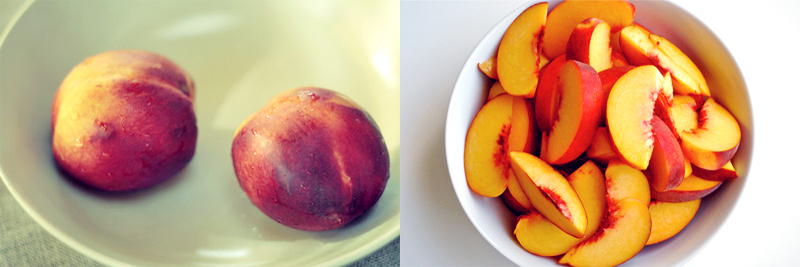Health Benefits of Strawberries
date: 2013-01-26  time: 21:49:58
time: 21:49:58
 time: 21:49:58
time: 21:49:58  helps reduce high cholesterol
helps reduce high cholesterol helps reduce oxidative damage
helps reduce oxidative damage helps regulate blood pressure
helps regulate blood pressure lessens cellular inflammation
lessens cellular inflammation enhances cognitive function
enhances cognitive function defends against cancer cells
defends against cancer cells anti-inflammatory
anti-inflammatory inhibits COX enzyme
inhibits COX enzyme promotes eye health
promotes eye health boosts immune system
boosts immune system defends against cataracts & macular degeneration
defends against cataracts & macular degeneration high in Vitamin C
high in Vitamin C aids in bone health
aids in bone health ellagic acid prevents collagen destruction - aka wrinkles
ellagic acid prevents collagen destruction - aka wrinkles promotes pre-natal health
promotes pre-natal health improves ulcerative colitis & Crohn's disease
improves ulcerative colitis & Crohn's disease aids in weight management
aids in weight management2 dl [1 cup] contains 21% manganese
2 dl [1 cup] = 43 calories
red color is from phenol anthocyanin



 bidrar till att minska högt kolesterolvärde
bidrar till att minska högt kolesterolvärde bidrar till att minska oxidativ skada
bidrar till att minska oxidativ skada hjälper till att reglera blodtrycket
hjälper till att reglera blodtrycket minskar cellulär inflammation
minskar cellulär inflammation förbättrar kognitiv funktion
förbättrar kognitiv funktion försvarar mot cancerceller
försvarar mot cancerceller anti-inflammatoriska
anti-inflammatoriska hämmar COX-enzymet
hämmar COX-enzymet främjar ögonhälsa
främjar ögonhälsa förbättrar immunförsvaret
förbättrar immunförsvaret försvarar mot grå starr och makuladegeneration
försvarar mot grå starr och makuladegeneration innehåller mycket C-vitamin
innehåller mycket C-vitamin hjälper till att stärka benhälsan
hjälper till att stärka benhälsan ellagsyran i bären förhindrar kollagen förstörelse - med andra ord rynkor
ellagsyran i bären förhindrar kollagen förstörelse - med andra ord rynkor främjar hälsan hos gravida
främjar hälsan hos gravida förbättrar ulcerös kolit & Crohns sjukdom
förbättrar ulcerös kolit & Crohns sjukdom hjälper till att hålla vikten i kontroll
hjälper till att hålla vikten i kontroll2 dl innehåller 21% mangan
2 dl = 43 calories
den röda färgen kommer från fenol antocyaninfärgning



Learn to love fruit ~
date: 2012-09-18  time: 19:43:00
time: 19:43:00
 time: 19:43:00
time: 19:43:00 
APPLES
Apples have been a power food since the Garden of Eden. They’re low in calories, rich in fiber, and a source of boron, a mineral your mind may require for mental alertness and that your body uses to maintain sufficient levels of calcium.

APRICOTS
Tart yet sweet, apricots are a storehouse of beta-carotene, a nutrient that helps protect against many types of cancer. Three raw apricots or ten dried halves will give you your daily quota of this nutrient.

AVOCADOS
Here’s one creamy food that can help lower your cholesterol – by as much as 9 to 43 percent, according to one study. Avocados are also rich in potassium and magnesium, two minerals your muscles rely on.

BANANAS
The banana is the world’s best natural, low-fat source of vitamin B6, a nutrient that helps make antibodies to fight disease. Eat just one banana, and you have taken in one-third of the recommended daily allowance of B6.

NECTARINES
Bet you wouldn’t think of the nectarine when asked to name a fiber-rich fruit. Yet a single nectarine has even more fiber than a whole banana. Nectarines are also an excellent source of vitamin A and potassium.

ORANGES
Sure, orange is synonymous with vitamin C. But did you know it’s also a source of calcium? A medium size orange gives you as much calcium as an ounce of Brie, though it has 30 fever calories and none of the sodium.

PEACHES
Keen on peaches? Well that’s peachy keen because this source of vitamins A and C will satisfy your sweet tooth without overloading you with fat. Pick fresh peaches over canned to get the maximum fiber benefit from this fruit.

GRAPEFRUIT
This fruit is a good source of vitamin C. A medium sized grapefruit contains 50 percent more vitamin C than the recommended dietary allowance. Try flavoring it with cinnamon instead of sugar.

PRUNES
If you’ve never eaten a prune, you’re in for a moving experience. Prunes are nature’s best-tasting laxative. They contain a great deal of fiber, making them great for lowering your blood cholesterol level as well.

WATERMELON
Heaven can be had for just 152 calories a slice. But don’t dismiss watermelon as a mere taste-pleaser. The vitamin C content of this juicy melon may help protect you against cancer of the esophagus and stomach.

STRAWBERRIES
Say “fiber” and you immediately think of heavy foods such as bran, right ? Well, strawberries contain fiber too, the soluble kind that slows digestion of foods so you feel full longer. Count them for vitamin C, too.

HONEYDEW MELON
Fragrant and inviting, this juicy melon packs a vitamin C wallop. You can also count on it for potassium, a mineral you need in sufficient amounts to keep your muscle from cramping. Let your sweet tooth indulge.

POMEGRANATES
They are very powerful antioxidants. They are very rich sources of vitamin C, vitamin B, calcium and phosphorus. These nutrients and other minerals present in pomegranates help in the prevention of many diseases.

 Apple,
Apple,  Apricot,
Apricot,  Avocado,
Avocado,  Banana,
Banana,  Grapefruit,
Grapefruit,  Honeydew melon,
Honeydew melon,  Nectarine,
Nectarine,  Orange,
Orange,  Peach,
Peach,  Pomegranate,
Pomegranate,  Prune,
Prune,  Strawberry,
Strawberry,  Watermelon,
Watermelon, 
 0 comments
0 comments 






